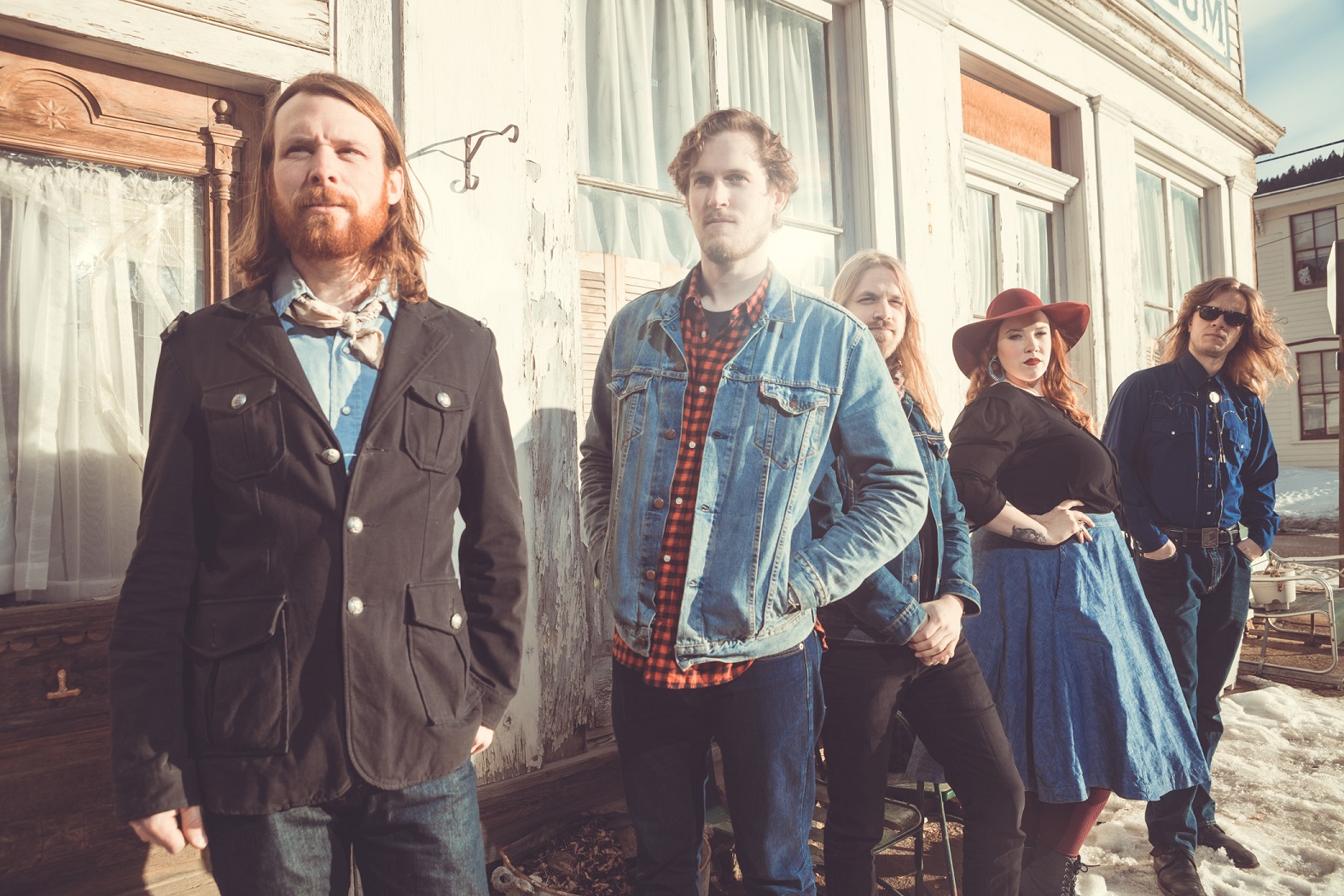An aching electropop upheaval full of inner pain and raw energy, “Beautiful Things” is an expressive introduction to a new era of BAO.
Stream: “Beautiful Things” – BAO
[soundcloud url=”https://api.soundcloud.com/tracks/852634996?secret_token=s-IXJfKLvbktC” params=”color=%23ee2a7b&auto_play=true&visual=true&hide_related=false&show_comments=true&show_user=true&show_reposts=false” width=”100%” height=”300″ iframe=”true” /]
All the people scream for their dead dreams and tell you not to try ’cause you won’t fly. But you just watch the show, like a black crow
Glittering synths soar and drum beats pulse as a moment of reckoning gets underway. This isn’t BAO’s first introduction to the world – far from it, in fact – but it’s most certainly a rebirth of sorts: An aching electropop upheaval full of inner pain and raw energy, “Beautiful Things” is an expressive introduction to a new era of BAO.

‘Cause you live your life like a falling knife
Please don’t hold too close, ‘cause I’ll hurt you
You turn the other way on your good days
‘Cause you live your life like a black kite
Circle through the crowd, go your own way
You don’t have much to say on your good days
‘Cause all the beautiful things don’t agree with you
And all the uglier things, they do
Cause all the beautiful things don’t agree with you
And all of the ugly things suit you
Atwood Magazine is proud to be premiering “Beautiful Things,” the fervent opening track and lead single off BAO’s upcoming debut album Perpetual Heartbreak (independently out October 9. 2020). The new musical moniker for LA-based songwriter and producer Bao Vo (formerly of Asian American electro-pop duo Ming & Ping, formed with his twin brother), BAO builds upon the artist’s electronic pop past with an added indulgence in identity, relationships, and sociopolitical issues.
It’s Death Cab for Cutie meets The Naked and Famous: A blend of alternative, heated sonics with intimate, evocative vocals binding everything together.

‘Cause you drive a car like a shooting star
Just to get away from your dark days
Look above the crowd then you look down
All the voices drown all the highway sounds
Turn the volume down and you’re not there
You listen to the crowd then you look down
Having described his album as sounding “like a Phil Collins cassette that has melted in the sun,” Perpetual Heartbreak‘s formal introduction comes in the form of a visceral performance. Recorded and released nearly a decade ago by Ming & Ping, “Beautiful Things” gets a whole new ‘do as BAO strips the song back and leans into its darker edges.
“‘Beautiful Things’ is an electronic pop anthem for the outsiders, misfits, and weirdos,” BAO tells Atwood Magazine. “”The ’80s-inspired soundscape mirrors the mood swings of the densely layered vocals, oscillating between triumph and introspection. The song can be summed up by its closing lyric, ‘All the people scream for their dead dreams and tell you not to try ’cause you won’t fly. But you just watch the show, like a black crow.’“
‘Cause all the beautiful things don’t agree with you
And all the uglier things, they do
Cause all the beautiful things don’t agree with you
And all of the ugly things suit you
There is pain in this music: A tremendous amount of self-knowing, with just as much self-discovery left to be done. “Beautiful Things” is a dark and turbulent overhaul of emotion – a rework that harrowingly evokes the depth of its lyrical content. Get to know BAO in our interview below, and stream “Beautiful Things” exclusively on Atwood Magazine!
— —
:: stream/purchase PERPETUAL HEARTBREAK here ::
Stream: “Beautiful Things” – BAO
[soundcloud url=”https://api.soundcloud.com/tracks/852634996?secret_token=s-IXJfKLvbktC” params=”color=%23ee2a7b&auto_play=false&visual=true&hide_related=false&show_comments=true&show_user=true&show_reposts=false” width=”100%” height=”300″ iframe=”true” /]
A CONVERSATION WITH BAO

Atwood Magazine: I believe in the importance of a strong album opener. Why did you choose “Beautiful Things” to begin your debut album?
BAO: “Beautiful Things” is a cover version of a song by my previous act, Ming & Ping. My current band has been performing it live and during the coronavirus lockdown, we decided to go to town on a completely new BAO arrangement of the song. I was blown away by what we all recorded remotely when it all came together.
The track landed in the opening spot for three reasons. First, it’s an outsider’s anthem. Its message of embracing your own unique identity is a theme that runs throughout the album and a lot of my music. Secondly, I wanted Perpetual Heartbreak to be an official launchpad from my work with Ming & Ping and so this cover version is a tribute to them and their fans. Lastly, the song’s arrangement and tempo are really engaging to me–the way that the music mirrors the manic mood swings in the lyrics. It’s a showcase of the BAO band’s virtuosity, I think.
What do you hope others take away from this song? What emotions come to mind when you hear it?
BAO: I think there are a lot of people like me who never felt like they fit in growing up. For me, it had a lot to do with being a first-generation immigrant from Vietnam and all the compromises that make your existence less offensive to American society. For example, the seemingly harmless act of dropping the question mark accent from my name, Bảo, so that my teachers wouldn’t have to be inconvenienced. I’ve come to terms with a lot of that, but you can imagine how many people can feel like they’re drowning in a million small raindrops. This applies to every underrepresented group. It’s quite a process to come to terms with embrace your own “weirdness” and that’s what “Beautiful Things” seeks to celebrate.
I know your debut album is a very long time in the making. Can you share a little about the story behind this album?
BAO: Yes, there were several years leading up to my decision to put my weight behind BAO as a solo act. I think the root cause of that is that I’ve been straddling the visual and musical arts my entire adult life. I grew up as a visual artist and I’ve had a long design career in the marketing and technology industries. I didn’t realize how much music meant to me until a few years ago, after the tragic death of one of Ming & Ping’s fans.
Then the madness of 2020 compelled me to use Perpetual Heartbreak as a vehicle to express my most honest self, separate from all the pretense of BAO as a musical act. To be clear, I don’t plan to be so personal and vulnerable all the time with all of my work, because role-playing as your artist persona is a fun and creative outlet. But this album really is just me assembling a time capsule of how I feel in this weird time in the most unvarnished way. I hope that comes across in the words, and music, and textures.
The madness of 2020 compelled me to use ‘Perpetual Heartbreak’ as a vehicle to express my most honest self.

Can you speak more about Perpetual Heartbreak overall, and how you feel this record distinguishes you from your work in Ming & Ping?
BAO: There are strong core similarities because I return to the themes and approaches that define me as an artist. But stylistically it was liberating to break out of the deliberately robotic aesthetic of Ming & Ping. If Ming & Ping’s sound were the musical equivalent of Andy Warhol, then this new BAO record could be its companion Jean-Michel Basquiat; less symmetrical, more grungy, and loaded with hidden symbols.
Perpetual Heartbreak feels so singular in nature; as if all the songs, like puzzle pieces, fit just right. How do you feel this record captures your artistry?
BAO: When I start on an album, I often think about the whole experience as if I’m making a film. Ming & Ping’s most recent EP Los Angles November 2019 is a good example of that. Perpetual Heartbreak was different because this time I had a strong theme around which I collaged new and existing songs. The title “perpetual heartbreak” was a way of saying “it’s okay to feel and feel really hard.” Having this as a theme made me feel confident about bringing in some existing songs that could tie the album together. The end result is that Perpetual Heartbreak feels like a surreal non-linear movie, inspired by the films of Michel Gondry and David Lynch.
How do you personally define your “sound”? How do you describe it, say, to parents or grandparents?
BAO: I’ve had some practice describing the album to my mom because she’s a native Vietnamese speaker with very little knowledge of popular music. I tell her that it’s all the layered voices from the Beach Boys songs that we listened to when she used to drive me to school, but combined with music that sounds like the 80s sci-fi movies that I used to watch on old VHS tapes.
— —
:: stream/purchase PERPETUAL HEARTBREAK here ::
Stream: “Beautiful Things” – BAO
[soundcloud url=”https://api.soundcloud.com/tracks/852634996?secret_token=s-IXJfKLvbktC” params=”color=%23ee2a7b&auto_play=false&visual=true&hide_related=false&show_comments=true&show_user=true&show_reposts=false” width=”100%” height=”300″ iframe=”true” /]— — — —

Connect to BAO on
Facebook, Twitter, Instagram
Discover new music on Atwood Magazine
? © 2020
:: Stream BAO ::








